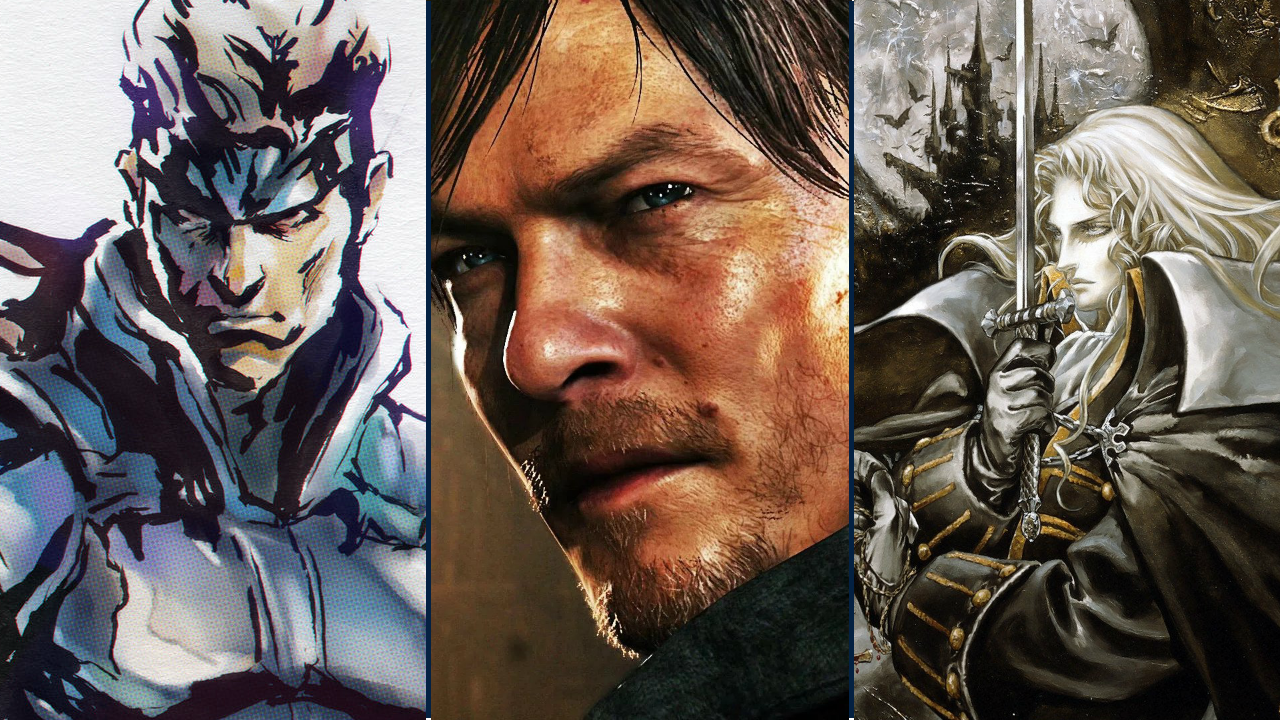With recent rumors of Sony having licensed the Silent Hill IP from Konami and currently developing two new titles of the seminal horror franchise – one a soft reboot of the series with members of the now-disbanded KCET (more affectionately known as Team Silent), and the other a revival of Silent Hills – it didn’t take long for old rumors to resurface. Many are under the impression that Sony’s speculative deal with Konami involves more than licensing an IP that had been banished to pachinko parlor purgatory. Instead, it seems that Sony very much wants to buy Silent Hill from the legendary game company along with every other noteworthy property in Konami’s possession. For as much as I want to free legacy IPs such as Castlevania and Metal Gear from pachislot prison, Konami isn’t necessarily hard-up for a massive cash-injection these days. As of early 2019, the company’s game sales were up 18%, having earned $1.75 billion in the previous nine-month period. That’s all without releasing any major games outside of its licensed Pro Evolution Soccer and Yu-Gi-Oh! franchises. To put it bluntly, nothing short of a stadium-sized vault filled with gold coins would make Konami give up its preciouses. While Konami likely won’t sell anything to anyone anytime soon, licensing its most celebrated franchises will go a long way in restoring its tarnished reputation. And if Sony were to make this happen, it will give the company a distinct advantage going into the generation regardless of how much power competing next-gen systems offer, or how many studios the other side is gobbling up.
Microsoft’s key failings during the current generation were more than just a games’ issues – or a lack thereof. Out the gate, the Xbox One was $100 more expensive than the PS4, was notably weaker, and far less attractive in design. As time went on, and Sony released hits such as Horizon: Zero Dawn, Bloodborne, and Uncharted 4, Microsoft not only struggled to keep up the pace with exclusive titles that Sony was bombarding its audience with, Xbox One-only games had something of a quality problem. Massively marketed and hyped titles were met with middling critic and consumer response. So it wasn’t just that Microsoft didn’t have enough first-party titles, it was also that what they were putting out was mediocre at best. As the sales gap between the Xbox One and the PS4 widened exponentially in Sony’s favor, cracking the gaming market outside of the United States grew increasingly unlikely for the Xbox One. The incentive to own the system just wasn’t there. Flash forward to today where we see Microsoft’s complete devotion to reverse the wrongs of the Xbox One. Aside from Game Pass, which still remains as one of the best services a gamer could subscribe to, it has effectively quashed its lack of games issue by buying-up a number of noteworthy and veteran game development companies. Sure we won’t see the fruits of these acquisitions for a bit of time, but rest assured that games – and lots of them – are coming. So naturally, it seemed that Sony would (i.e. should) respond in a similar fashion.
With rumors as to the likelihood of Sony purchasing Remedy to the absurd fantasy of buying Rockstar, and the very-real acquisition of Insomniac Games, games’s media and gamer alike waited for Sony to loosen the pursestrings and go on a shopping spree. But Sony never had a software quantity issue, let alone an issue of quality. Acquiring Insomniac Games was not to be the start of something, but rather a fitting and sensical business decision that was backed by a decades-long relationship. From the likes of Spyro the Dragon and Ratchet & Clank, to Resistance and the mega best-seller Spider-man, anyone could have seen this union coming from a mile away. It wasn’t a deal brokered out of wanting more better quality games for your audience; Sony already has that in spades – across all of SIE Worldwide Studios and through tremendous third-party support. But if Sony were to suddenly have the likes of Metal Gear, Castlevania, Silent Hill, and Contra as exclusive titles, then that would be the perfect power move going into next-gen. To give you an idea of what these franchises mean to gamers, Rely on Horror’s reporting of a Silent Hill series reboot and Silent Hills revival in the works by Sony crashed their website. P.T. was such a global phenomenon that it created its own subgenre of horror games. And given how the Metal Gear franchise went out with the whimper that was Metal Gear Survive, the lackluster Contra: Rogue Ops didn’t quite do it for fans, and just how topical Castlevania has become with Bloodstained: Ritual of the Night being the great big success that it is and the Netflix series continuing strong into its third season and expanding the fan base, the demand for quality titles to be made from Konami’s legacy IPs has never been stronger.
Sony doesn’t have deep pockets like Microsoft does, and that doesn’t matter. Instead of spending millions to acquire a bunch of studios, Sony can garner even more media attention with a series of smart licensing agreements at a fraction of the cost. What makes for a more exciting headline: “Microsoft acquires inXile Entertainment” or “Silent Hill is a PS5 exclusive?” Sony wouldn’t even look beyond Konami in term of securing game licenses. As much as I would love for this idea to expand into dormant IPs such as Legacy of Kain, Parasite Eve, and Tomba!, Konami is a great starting point. Aside from the heavy-hitters, Konami also has Suikoden and Bloody Roar under its umbrella. And if any franchises were in desperate need of revival its those two.
With Microsoft doing its best to run away with the headlines by unleashing a salvo of Series X news, propping up Game Pass, and focusing its next-gen to be as consumer friendly as promising, Sony cannot rest on its laurels for long. The inevitable Horizon 2, Spider-man 2, and God of War sequel will come to PS5 in time. PSVR 2 is going to happen. And PSNow will continue to evolve as a more enticing service. But to really ensure greatness, to show your audience there really is no better place to play, then help bring back the games that made so many players in the first place.





